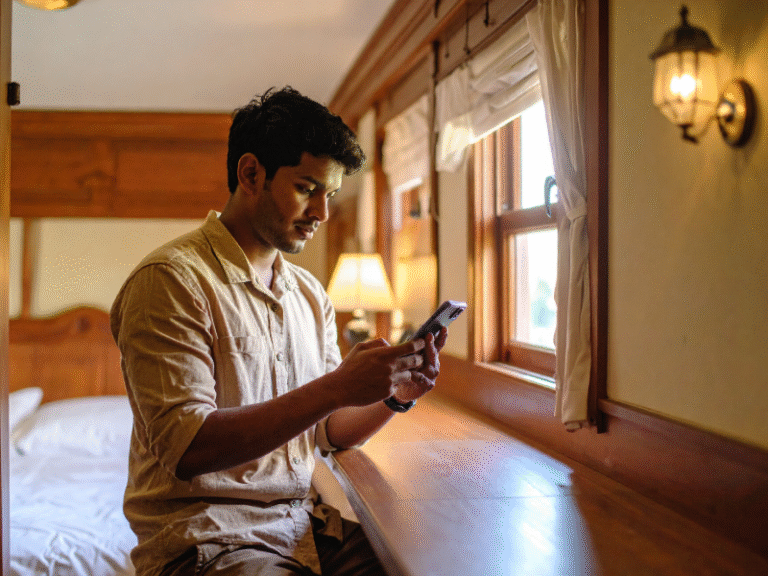Unhacking Health in a Noisy World
You know the drill. You’re scrolling through your feed, and it’s a minefield of advice.
One minute, a ripped influencer in LA is telling you to drink buttered coffee to “bio-hack” your brain.
Swipe again, and a wellness guru is insisting that you can only eat fruit before noon.
Swipe again, and a doctor on a podcast makes the wild claim that you could be an obese smoker and not get heart disease as long as your cholesterol is low enough.
It’s exhausting, isn’t it?
It feels like staying healthy has become a competitive sport, and we’re all losing.
The “rules” are constantly changing, the “hacks” get more extreme, and most of it feels completely disconnected from our actual lives here in Sri Lanka.
We’re caught in a weird tug-of-war between ancient wisdom and hyper-modern, often questionable, science.
But what if the path to genuine well-being isn’t about choosing a side? What if it’s about reclaiming common sense?
The Problem with “Hacking” Your Health
This obsession with finding the “one weird trick” is big business. It’s built on making you feel like you’re broken and that only a special supplement, a restrictive diet, or a thousand-rupee smoothie can fix you.
Think about that claim we discussed: that low cholesterol is a free pass to ignore every other health risk. It’s the perfect example of a dangerous oversimplification.
It sounds incredible, so you want to believe it. It makes a complex problem (heart health) seem incredibly simple (just fix this one number).
But our bodies aren’t a line of code. They are complex, messy, biological systems.
Health isn’t a single number on a lab report. It’s the sum of a thousand small, daily decisions.
And this is where the wisdom we grew up with starts to look a lot smarter than the trends we scroll through.
The “Mom-Approved” Counter-Revolution
Let’s be honest. When did your mother or grandmother ever tell you to “intermittent fast” or “eliminate a macronutrient”?
Their advice was probably simpler. Annoyingly so, at times.
“Eat your vegetables.” (Not “go on a 3-day juice cleanse.”)
“Go outside and play.” (Not “smash a 45-minute HIIT session until you want to throw up.”)
“Get a good night’s sleep.” (Not “optimize your REM cycles with three different wearable devices.”)
The traditional Sri Lankan plate, a thoughtful portion of rice surrounded by a universe of vegetables, lentils, and maybe a piece of fish or meat, is a masterclass in balanced nutrition that wellness influencers are only just catching up to.
It’s naturally high in fibre, rich in micronutrients, and built for sustainable energy, not a frantic sugar rush followed by a crash.
We’ve been encouraged to trade this time-tested model for protein bars that taste like chalk and powders that promise the world but mostly just empty our wallets.
Finding Your Middle Ground
Okay, so this isn’t about ditching your gym membership and only eating what your parents tell you to.
It’s about creating a personal philosophy that works for you, right here, right now.
Question the Extreme.
The first rule of a sane health journey is, if it sounds too good or too crazy to be true, it probably is.
Your body is not designed for extremes.
It thrives on consistency. Any “expert” who tells you to completely eliminate a food group or that one single factor can erase all other risks is selling you something.
Focus on Addition, Not Subtraction.
The wellness world loves telling you what to cut out. It creates a mindset of scarcity and punishment.
Flip the script. Instead of banning bread, maybe just add an extra serving of greens to your lunch. Instead of quitting sugar cold-turkey, maybe add a 30-minute walk after dinner. It’s more effective and way better for your mental health.
Embrace the 80/20 Kottu Principle.
80% of the time, you stick to the plan.
You eat your veggies, you move your body, you get your sleep.
But the other 20%? You live your life.
You go out with friends and have the cheesy kottu. You have a piece of cake at your cousin’s birthday party. You enjoy it, guilt-free, and get back on track the next day.
Health includes happiness, and a life without simple pleasures is not a healthy one.
Listen to Your Own Data.
Your body is the only expert on you. That influencer might swear by a 5 AM cold plunge, but if it makes you miserable and tired, it’s not working for you.
Pay attention to how you feel. Does that meal give you energy or make you sluggish?
Does that workout leave you feeling strong or just broken? Combining this with a routine checkup is a great start.
Ultimately, this is your journey.
Health and wellness should empower you, not make you feel inadequate.
It’s time to unfollow the noise and start tuning in to the simple, powerful wisdom that’s been around us all along.
True well-being is less about “hacking” and more about harmony.
We all know that everything you see online is not inherently true.
And don’t believe everything you hear and only believe 50% of what you see.
Sometimes, the knowledge and wisdom that is on Social Media might have an agenda behind it that is not in your best interest.



